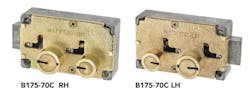Aug. 23--Marijuana dispensaries are awash in green -- not just cannabis but also the stacks and stacks of cash they receive for their product and can't deposit in a bank.
In Colorado, Washington and other states that have legalized marijuana, dispensaries are all-cash businesses with nowhere to stash their money but safes. If Florida voters approve a medical marijuana referendum in November, they could create an industry that generates hundreds of millions of dollars in revenue, much of it held outside the formal banking system.
Like bankers in other states, Florida financial institutions say they're unlikely to open accounts for dispensaries. Bankers point to a conundrum: Even if pot is legal in many states, the federal government still considers marijuana an illegal drug -- and the feds exert broad control over banks, operating everything from deposit insurance to check clearing to money laundering investigations.
"It's a very murky area," said Russell Greene, president of Grand Bank & Trust of Florida in West Palm Beach.
Federal regulators say more than 100 banks and credit unions have begun to take deposits from marijuana businesses, but challenges remain. Those institutions -- the feds won't name them, and few banks are willing to volunteer what they consider sensitive information -- amount to fewer than 1 percent of all banks and credit unions.
Dispensary owners in Colorado and Washington say banks and credit unions refuse to take their money.
"The banks are very conservative, to say the least," said Luke Ramirez, co-owner of the Walking Raven Retail and Medical Marijuana Center in Denver. "In a nutshell, we can't use banks, so we have large amounts of cash."
Accused of caution, bankers plead guilty. The gap between states' rights and federal drug policy leaves many bankers wary that opening an account for a marijuana business will invite regulatory trouble. Federal officials can impose hefty fines on banks accused of laundering cash for drug dealers and, in some cases, pursue criminal charges.
"The risk is too high," said Alex Sanchez, president of the Florida Bankers Association. "We're not going to take the chance, so we're not going to bank these people."
For marijuana sellers and growers, that means no checks, no credit cards, just wads of cash. Colorado's marijuana dispensaries hire security firms and armored truck companies to move and store their greenbacks.
"They have big safes full of cash," said Sam Kamin, a University of Denver law professor who has studied banking regulation and marijuana. "They pay their taxes and licensing fees with it. They pay their suppliers and employees with it."
Marijuana seller Ramirez said he uses cash for many business expenses. For some routine bills, like cable and Internet service, he buys money orders. And he hires a security firm to protect his cash.
"There are different locations where we have a large amount of cash stored," Ramirez said. "We try to keep it pretty close to the vest."
Still, some banks are warming up to weed. The federal Financial Crimes Enforcement Network in February issued guidelines for banks dealing with marijuana sellers, and the agency now counts 105 banks and credit unions taking deposits from marijuana-related businesses.
"From our perspective, the guidance is having the intended effect," Director Jennifer Shasky Calvery said in an Aug. 12 speech at a money-laundering conference in Washington, D.C. "It is facilitating access to financial services, while ensuring that this activity is transparent and the funds are going into regulated financial institutions responsible for implementing appropriate (money-laundering) safeguards."
Shasky Calvery said the feds have received more than 1,000 "suspicious activity reports" -- documents banks must file when they're dubious of the source of a customer's cash -- from 105 banks and credit unions accepting cash from marijuana dealers. That represents a significant investment of time in paperwork. Grand Bank's Greene said creating and filing just one of the documents can take two to three hours.
"If we have an inkling we're going to have to file a lot of suspicious activity reports, we wouldn't want that business as a client," Greene said. "We don't want to spend that kind of time, and we don't want to be in the cross-hairs of our regulators."
In the state of Washington, where recreational marijuana is legal, two credit unions said they'll take cash from marijuana growers and processors, but not from the dispensaries that sell directly to consumers. In Colorado, lawmakers allowed banking co-ops to form to take dispensaries' cash, but that plan has hit roadblocks. The co-ops would be locked out of the federal deposit insurance and check-clearing systems.
Some are optimistic that the banking blockade will lift by the time marijuana becomes legal in Florida.
"It's still a cash business, but in terms of sitting on big piles of cash, that problem seems to be working itself out," said Adam Laufer, co-chief executive of MJ Holdings, a Miami-based landlord of Colorado marijuana businesses.
Others say buttoned-down bankers are in no rush to embrace sellers of weed.
"As long as marijuana remains an illicit substance," the University of Denver's Kamin said, "and as long as producing and selling marijuana is a felony, banks are going to stay away from it."
Polls show Floridians overwhelmingly support the state's medical marijuana amendment. The National Cannabis Industry Association estimates that Floridians would spend $780 million a year on legal pot.
Copyright 2014 - The Palm Beach Post, Fla.





